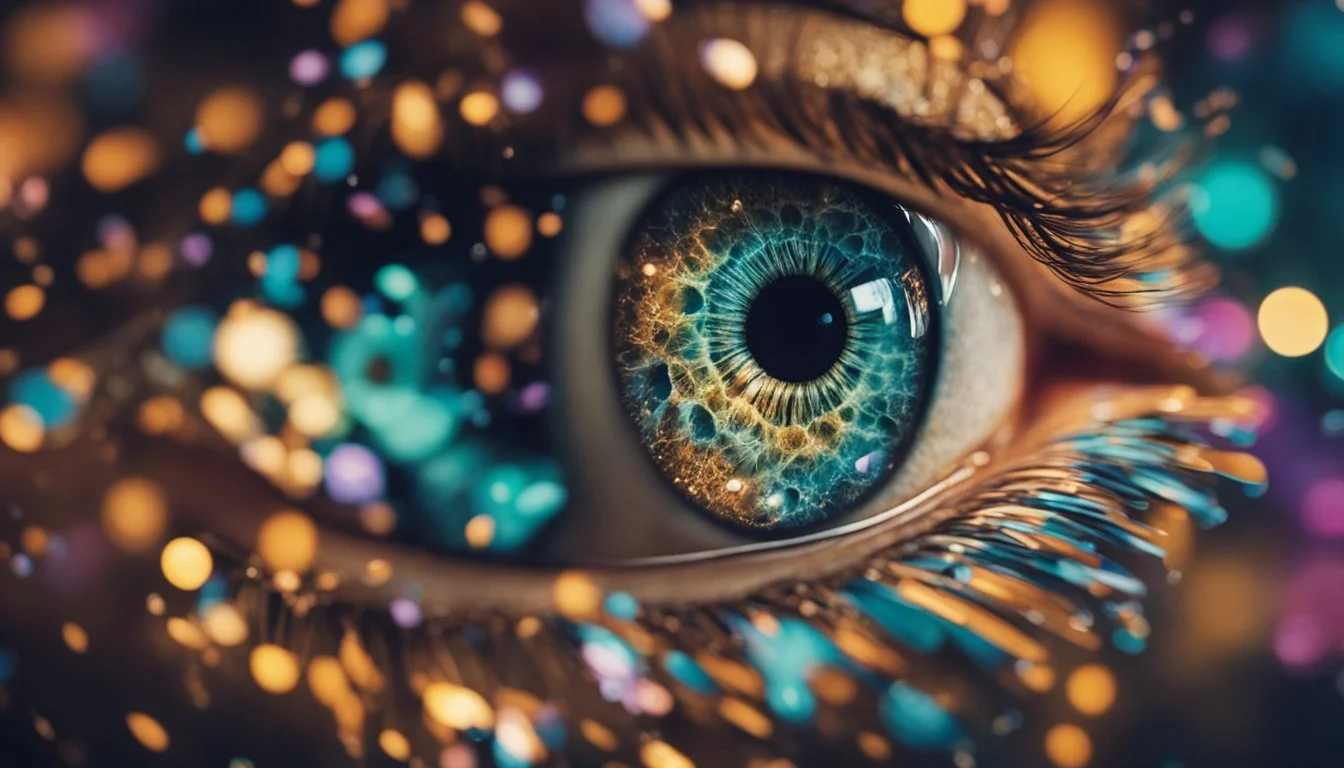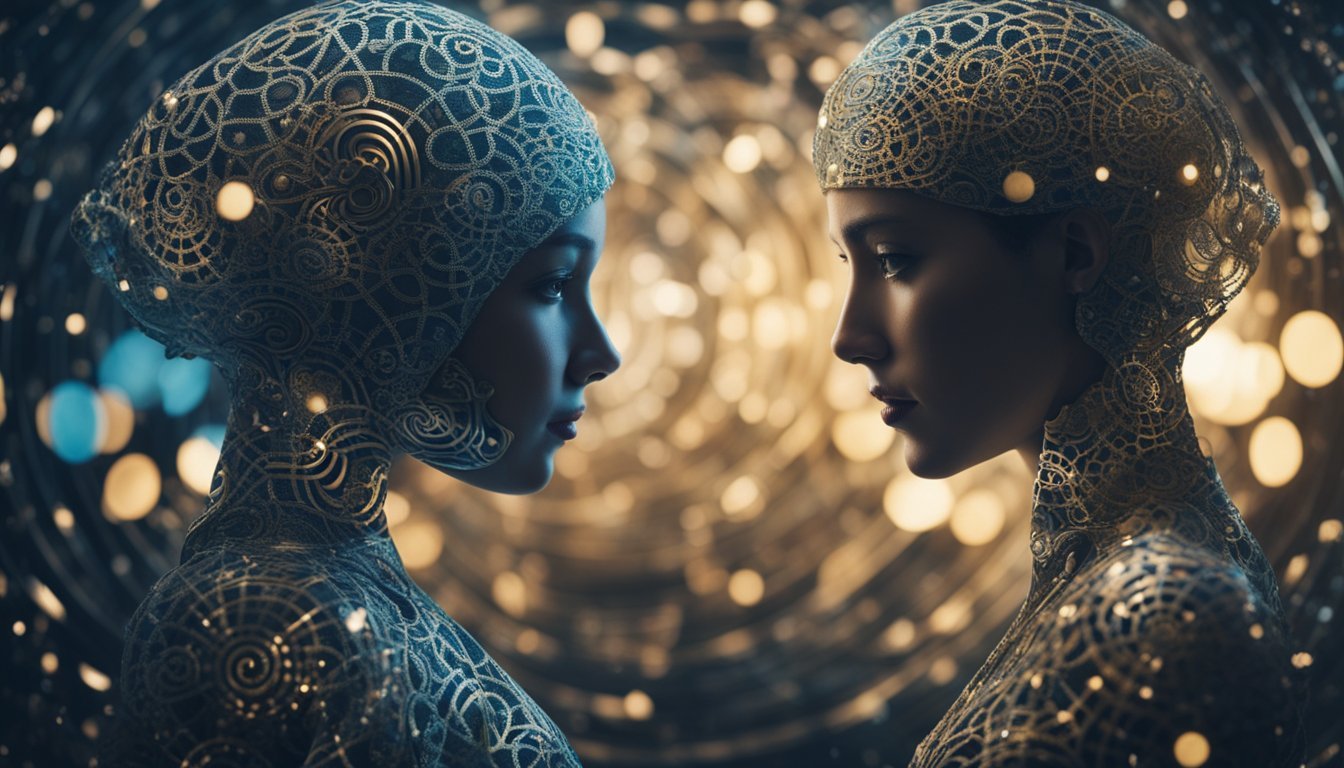7 Documentaries That Investigate the Phenomenon of Love at First Sight
Exploring Instant Attraction
Love at first sight has captivated people's imaginations for centuries, inspiring countless stories, songs, and films. This romantic notion suggests that two individuals can form an instant, deep connection upon their first encounter. While some dismiss it as mere infatuation or lust, others believe it can be the foundation for lasting relationships.
Scientific research has shed light on the psychological and physiological processes behind love at first sight, revealing a complex interplay of attraction, hormones, and cognitive biases. Documentaries exploring this phenomenon offer viewers insights into the experiences of those who claim to have fallen in love instantly, as well as expert perspectives on the validity and implications of such rapid emotional connections.
1) "The Science of Love" by Helen Fisher (2006)
"The Science of Love" explores the biological and neurochemical basis of romantic love. Dr. Helen Fisher, a renowned anthropologist, presents her research on the brain's response to love and attraction.
The documentary delves into Fisher's theory of three distinct brain systems involved in love: lust, romantic attraction, and long-term attachment. Each system is associated with specific neurotransmitters and hormones.
Fisher explains how brain scans reveal increased activity in certain regions when people view photos of their romantic partners. These areas are linked to reward, motivation, and focused attention.
The film also examines the evolutionary purpose of love and its role in human mating strategies. Fisher discusses how different personality types may be more compatible based on their neurochemical profiles.
"The Science of Love" offers viewers insights into the universal experience of falling in love from a scientific perspective. It combines interviews, brain imaging data, and evolutionary theory to shed light on this complex emotion.
More information on Helen Fisher's research
2) "Crazy, Stupid, Love: The Psychology of Love at First Sight" (2011)
This documentary explores the psychological underpinnings of love at first sight. It examines the brain's rapid response to visual stimuli and how it influences instant attraction.
Experts discuss the role of neurotransmitters like dopamine and norepinephrine in creating feelings of euphoria and excitement upon seeing an attractive person. The film delves into studies on facial symmetry and its impact on perceived attractiveness.
The documentary also investigates the influence of past experiences and cultural conditioning on immediate romantic connections. It features interviews with couples who claim to have experienced love at first sight, analyzing their stories through a scientific lens.
Researchers present findings on the accuracy of first impressions and their correlation with long-term relationship success. The film explores the concept of "thin-slicing" - making quick judgments based on limited information.
"Crazy, Stupid, Love" challenges viewers to consider whether love at first sight is a genuine phenomenon or a romanticized notion perpetuated by media and societal expectations.
3) "Love at First Sight: A Global Cultural Perspective"
This documentary explores how different cultures around the world perceive and experience love at first sight. It features interviews with couples from various countries who claim to have fallen in love instantly.
The film examines cultural attitudes towards romantic love in societies ranging from traditional communities in Asia to modern urban centers in Europe and North America. It highlights both similarities and differences in how people conceptualize and value immediate attraction.
Experts in anthropology and psychology provide insight into the biological and social factors that influence rapid romantic bonding across cultures. The documentary also touches on how globalization and technology are impacting notions of love at first sight in different parts of the world.
Through personal stories and academic analysis, the film offers a nuanced look at this universal yet culturally-specific phenomenon. It challenges viewers to consider how their own cultural background shapes their beliefs about instant attraction and lasting love.
Love at First Sight: A Global Cultural Perspective (2022)
4) "Instant Attraction: The Theory Behind Love at First Sight" (2020)
This documentary explores the scientific theories behind the phenomenon of love at first sight. It features interviews with psychologists, neuroscientists, and relationship experts who offer insights into the instant attraction some people experience.
The film delves into the role of hormones, particularly oxytocin and dopamine, in creating feelings of instant connection. Researchers explain how these chemicals can trigger powerful emotional responses within seconds of meeting someone.
Visual cues play a significant part in immediate attraction. The documentary examines how facial symmetry, body language, and even scent contribute to instant feelings of love or desire.
Evolutionary psychologists discuss the potential adaptive benefits of quick mate selection. They propose that rapid partner choice might have enhanced survival chances for our ancestors.
The film also addresses the influence of cultural factors and personal experiences on instant attraction. It explores how media portrayals of romance shape expectations and perceptions of love at first sight.
More information on "Instant Attraction: The Theory Behind Love at First Sight"
5) "A Life of Love: Stories and Studies by Dr. Arthur Aron" (2023)
This documentary explores the groundbreaking research of psychologist Dr. Arthur Aron on the science of love and human connections. Dr. Aron's work spans decades, including his famous "36 Questions That Lead to Love" experiment.
The film delves into Dr. Aron's personal journey and professional insights. It features interviews with couples who participated in his studies, offering real-life examples of how rapid intimacy can form.
Viewers gain a deeper understanding of the psychological and physiological processes involved in falling in love. The documentary examines factors like vulnerability, self-disclosure, and shared experiences that contribute to romantic attraction.
Dr. Aron's research on love at first sight is given special attention. The film presents scientific evidence supporting the phenomenon while also exploring its limitations and complexities.
Through a blend of personal stories and scientific data, "A Life of Love" offers a comprehensive look at the nature of romantic connections. It challenges viewers to reconsider their assumptions about love and relationships.
More information on Dr. Arthur Aron's research
6) "The Magic of First Sight" by Professor Stephanie Cacioppo (2022)
Professor Stephanie Cacioppo's documentary explores the science behind love at first sight. The film delves into neurological and psychological aspects of instant attraction.
Cacioppo, a renowned neuroscientist, presents cutting-edge research on brain activity during initial encounters. She examines how certain neural pathways activate when people experience an immediate connection.
The documentary features interviews with couples who claim to have fallen in love at first sight. These personal stories are interwoven with scientific explanations of the physiological responses involved.
Cacioppo discusses the role of hormones like oxytocin and dopamine in creating feelings of attraction and bonding. She also explores how visual cues and subconscious signals contribute to instant chemistry between individuals.
The film challenges common misconceptions about love at first sight, presenting it as a complex interplay of biological and psychological factors. It offers viewers a deeper understanding of this intriguing phenomenon.
More information about "The Magic of First Sight"
7) "Eyes Meet: Exploring the Myth of Love at First Sight" (2023)
This thought-provoking documentary challenges the popular notion of love at first sight. Director Emma Thompson interviews psychologists, neuroscientists, and couples who claim to have experienced instant attraction.
The film examines the biological and psychological factors that contribute to immediate romantic feelings. It explores the role of pheromones, physical appearance, and subconscious cues in sparking initial attraction.
Thompson presents research on the release of hormones like dopamine and norepinephrine during intense first encounters. These chemical reactions can create sensations similar to falling in love.
The documentary also investigates cultural influences that shape beliefs about love at first sight. It traces the concept's origins in literature and media, showing how these ideas persist in modern society.
Through personal stories and scientific analysis, "Eyes Meet" offers a balanced look at this romantic phenomenon. It encourages viewers to consider the complexities of human attraction and relationship formation.
Learn more about "Eyes Meet: Exploring the Myth of Love at First Sight" on IMDB
Psychological Theories Behind Love at First Sight
Psychological theories offer insights into the phenomenon of love at first sight, exploring how instant attraction and idealized connections form. These theories examine both biological and cognitive factors that contribute to rapid romantic bonding.
The Role of Physical Attraction
Physical attraction plays a crucial role in love at first sight. Research shows that visual cues trigger rapid assessments of potential mates. Facial symmetry, body language, and overall appearance contribute to instant attraction.
Evolutionary psychology suggests this quick evaluation stems from our ancestors' need to identify suitable partners efficiently. The brain releases chemicals like dopamine and norepinephrine upon seeing an attractive person, creating feelings of excitement and pleasure.
Studies indicate that people who believe in love at first sight are more likely to experience it. This self-fulfilling prophecy demonstrates how cognitive biases can shape romantic perceptions and experiences.
The Concept of Soulmates in Psychology
The idea of soulmates influences how people interpret instant connections. Some psychological theories propose that individuals develop internal models of ideal partners based on childhood experiences and cultural influences.
When meeting someone who closely matches this idealized image, people may experience an immediate sense of familiarity and connection. This perceived alignment can lead to feelings interpreted as love at first sight.
Critics argue that the soulmate concept can create unrealistic expectations in relationships. They suggest that true compatibility develops over time through shared experiences and communication.
Research shows that couples who believe they are soulmates often report higher relationship satisfaction initially. However, this belief may not predict long-term relationship success or stability.
Cultural Depictions of Instant Romance
Love at first sight has captivated audiences across various forms of media and cultures. This concept of instantaneous romantic attraction has been explored extensively in literature, film, and cultural narratives worldwide.
Love at First Sight in Literature and Film
Romeo and Juliet, Shakespeare's iconic play, exemplifies the enduring appeal of love at first sight in literature. The protagonists' immediate attraction has become a cultural touchstone for instant romance.
In cinema, films like "Before Sunrise" (1995) showcase the power of instant connections. The movie follows two strangers who meet on a train and spend a single night together, forming a deep bond.
Contemporary novels often explore this theme. Nicholas Sparks' "The Notebook" portrays a passionate summer romance that begins with an instant attraction between Noah and Allie.
Television series like "How I Met Your Mother" play with the concept, showing Ted's belief in love at first sight throughout his quest for "the one."
Comparing Western and Eastern Views of Love
Western cultures often romanticize the idea of love at first sight. Hollywood movies frequently depict instant attraction leading to lasting relationships.
In contrast, many Eastern cultures traditionally emphasize arranged marriages and gradual relationship development. However, this view is evolving in modern times.
Bollywood films, while embracing grand romantic gestures, often portray love as a process that develops over time rather than an instant connection.
Japanese anime and manga sometimes feature the concept of "destined lovers," a spiritual take on instant attraction that transcends lifetimes.
Korean dramas often blend elements of both instant attraction and slow-burning romance, reflecting a cultural shift in perspectives on love.








